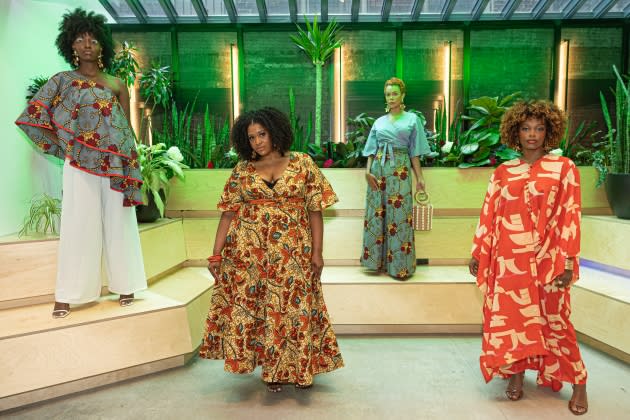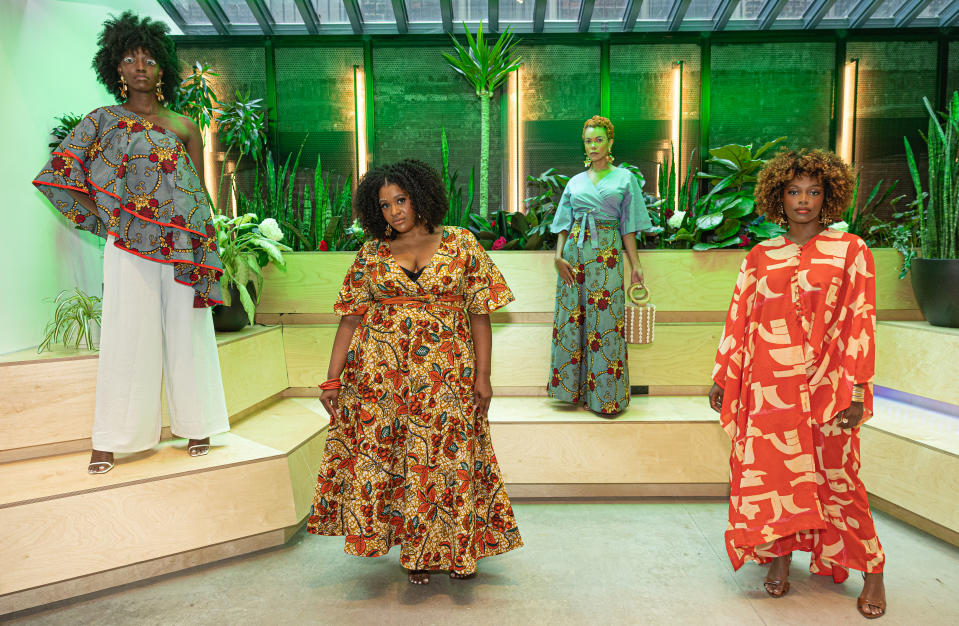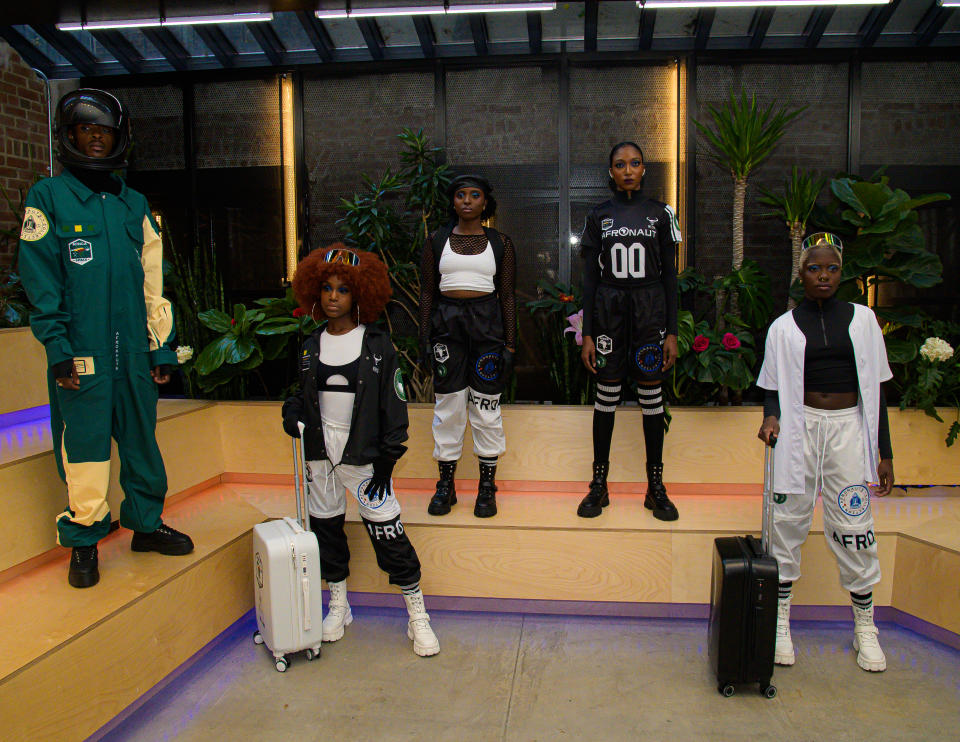Afropunk x Shopify Fashion Show Brings More Black Talent to the Runway

As the sun set in New York City Wednesday, a melting pot of people poured into the Shopify store in the SoHo neighborhood decked in Black-owned designer garb — Telfar duffel bags and Hanifa dresses among them — to Afropunk x Shopify’s Black Fashion Accelerator Fashion Show.
The fashion show is a culmination of the first year of the Black Fashion Accelerator program, a partnership between Afropunk and Shopify designed to offer professional development to a cohort of nine emerging fashion designers in order to help them create more profitable and sustainable brands.
More from WWD
“Black-owned businesses are underrepresented in the U.S., and Shopify is committed to making entrepreneurship accessible to anyone, anywhere,” Amena Agbaje, marketing program lead for Black entrepreneurship at Shopify, said. “There is nothing more inspiring to me than to offer Black entrepreneurs the tools and support to get their businesses up and running.”
Over the course of six months, the inaugural class of designers were offered access to experts and resources in the fashion industry, including exclusive mentorship from Chris Bevans, a 2017 CFDA/Vogue Fashion Fund finalist and the creative director of performance wear brand Dyne.
The 2022 BFA class of designers includes Bronté Laurent, founder of Par Bronté Laurent; Archie Clay 3rd and Tajh Crutch, founders of Wear Brims; Jelisa Smith, founder of House of Fleek; Melissa A. Mitchell, founder of Abeille Creations; Valerie Blaise, founder of Avvoune; Paakow Essandoh, founder of Mizizi; Sophia Danner-Okotie, founder of Besida, and Sylvester Ndhlovu, founder of RuvaAfricWear.
The Shopify store had large open-faced windows that gave way to multitiered stage, where models emerged through the spliced crowd to showcase the designers’ collections. DJ Mixshow and host Gitoo entertained the crowd with Afrobeats tunes and conversational jargon that gave the show into a warm, familiar atmosphere.
Okotie’s collection for her brand Besida, titled “Masego,” which the designer said means “blessings” in Tswana, a language spoken in Botswana, featured cotton Ankara reversible wrap maxi skirts, an Ankara kaftan with an asymmetric hemline, and an Ankara top/skirt combo that can be worn four ways. Besida takes a sustainable approach to its designs, paying homage to the designer’s Nigerian roots and how people there, Okotie said, naturally embrace sustainable and non-wasteful practices.

Courtesy of Afropunk
“We really try to make sure we source our fabrics in Nigeria specifically, and our team of artisans are in Nigeria. I always say us Africans know how to take one thing and make the most out of it,” the Okotie said. “We’re actually very sustainable by nature, so that’s what influences our sustainable designs. I have people who’ve been wearing my clothes since 2015 because we make sure that the clothes are made so well you don’t ever feel the need to throw it away.”
Along with designing sustainable fashion, Besida also pays the West African women artisans who work for the brand a living wage, a factor Okotie said helped financially equip many of the workers to enroll in higher education.
“Two of my tailors quit this year, and I was tempted to be hurt until they told me they were going to college. They could depend on this constant salary to put money away to afford school, all from one year of working,” the designer said. “Now, they’re going to study mass law and communications, so I’m really proud of that.”
Inspired by the Zambia space program of the 1960s, Mizizi’s new collection, called Afronaut, took a futuristic twist on the idea of Black people wearing custom Mizizi on a voyage to space. The models, sporting afros and holographic sunglasses, wore oversized jumpsuits that simulated space suits, formfitting jersey shirt and short sets printed with the brand’s logo on the sleeve and the word “afronaut” across the center, and baggy lightweight drawstring jackets for a streetwear-chic look into the galaxies.

Courtesy of Afropunk
Essandoh created Mizizi in 2013 while attending the University of South Florida, and said the idea for the brand was a passion project that would allow him to connect with other cultures. The Ghanaian American designer said representing other cultures through his streetwear designs, specifically those in the African Diaspora, is important.
“The African Diaspora, to me, means community. We may not necessarily be the same or have the same exact cultures, but there’s an underlying comfortability that’s there whenever connecting with others in the diaspora,” he said. “You can feel confident wherever you are wearing what you are, and still celebrate your culture at the same time.”
Fashion influencer Claire Sulmers, founder of fashion blog Fashion Bomb Daily was among the attendees, as was Monique Rodriguez, founder of Black-owned hair care brand Mielle Organics, which styled all of the models’ hair for the show.
As for what the fashion industry should be prioritizing moving forward to support Black entrepreneurs in fashion, Essandoh says the Black Fashion Accelerator is a good example to replicate.
“What the accelerator program is doing is exactly what needs to be done,” the Mizizi founder said. “Connecting the youth with people across the entire fashion industry who are experienced in different areas and who look like us and investing in the education of fashion.”
Best of WWD
Sign up for WWD's Newsletter. For the latest news, follow us on Twitter, Facebook, and Instagram.

